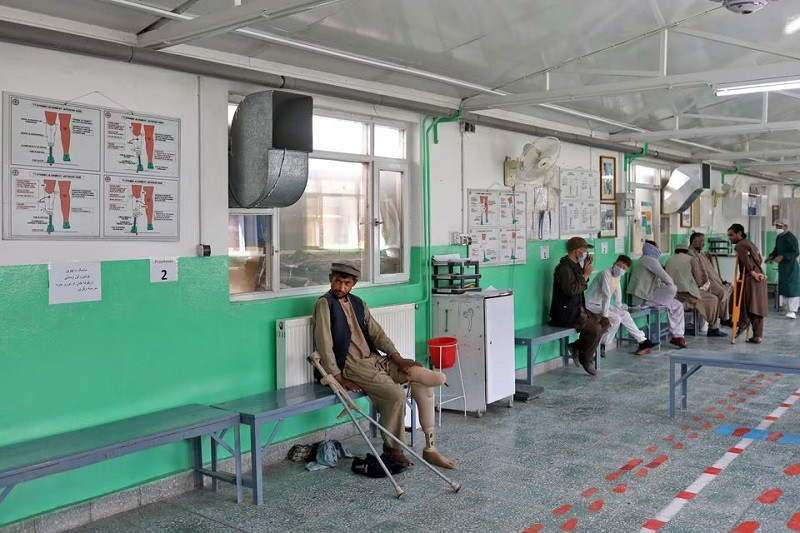Red Cross Decision to Cease Funding for 25 Hospitals in Afghanistan Navigating Challenges

Red Cross Decision to Cease Funding for 25 Hospitals in Afghanistan Navigating Challenges
Introduction
The Red Cross, a humanitarian organization renowned for its global efforts to alleviate suffering and provide aid during times of crisis, has recently announced a difficult decision. It plans to halt funding for 25 hospitals in Afghanistan, a country facing complex challenges on multiple fronts.
This move has sparked debates and concerns about the implications for healthcare in Afghanistan and the vulnerable communities relying on these facilities. In this blog, we delve into the reasons behind the Red Cross’ decision, the potential consequences, and the broader context of healthcare challenges in Afghanistan.
The Humanitarian Commitment of the Red Cross
For over a century, the International Committee of the Red Cross (ICRC) has been at the forefront of humanitarian efforts, providing essential medical care, clean water, and food assistance to communities affected by conflict, disasters, and emergencies. Operating in some of the world’s most challenging environments, the Red Cross has played a crucial role in alleviating suffering and saving lives.
Reasons for Ceasing Funding
The decision to end funding for 25 hospitals in Afghanistan is not a reflection of diminished commitment by the Red Cross. Instead, it sheds light on the complex challenges and operational difficulties faced in providing sustained assistance within a context of evolving dynamics.
- Security Concerns:The ongoing conflict and security risks in Afghanistan have made it increasingly difficult for humanitarian organizations to ensure the safety of their personnel and the effective delivery of aid. Insecurity hampers the Red Cross’ ability to operate and support hospitals, putting both staff and patients at risk.
- Operational Constraints:Amidst a volatile environment, ensuring the efficient and effective functioning of hospitals becomes an arduous task. Logistics, supply chains, and the overall management of healthcare facilities are hindered by challenges such as infrastructure damage, limited resources, and bureaucratic hurdles.
- Access and Reach:The wide-ranging conflict has led to limitations in accessing vulnerable communities, making it challenging to provide consistent and comprehensive medical care across the country. Access restrictions can compromise the ability to deliver aid and monitor the impact of assistance.
Impact on Healthcare Services
The Red Cross’ decision to cease funding for these hospitals raises concerns about the potential impact on healthcare services and the communities that rely on them. Hospitals often serve as lifelines for remote and underserved areas, providing critical medical care and addressing public health needs. With the withdrawal of funding, these hospitals may face challenges in maintaining their operations, procuring essential supplies, and retaining qualified medical staff.
While the decision is undoubtedly a difficult one, it highlights the broader need for a sustainable and comprehensive approach to healthcare in Afghanistan. Efforts to strengthen local healthcare systems, build capacity, and enhance the resilience of communities are essential to ensure the continuity of medical services.
Collaborative Solutions and Long-Term Strategies
Addressing the healthcare challenges in Afghanistan requires a collaborative and multifaceted approach involving various stakeholders, including governments, international organizations, non-governmental organizations (NGOs), and local communities. The Red Cross’ decision serves as a reminder of the need for sustained efforts to address the root causes of healthcare disparities and vulnerabilities.
- Local Empowerment:Empowering local healthcare institutions and professionals is pivotal to building resilience and ensuring that communities have the resources and expertise to provide essential medical services.
- Capacity Building:Investing in training, education, and skill development for healthcare workers can enhance the quality of care and contribute to the long-term sustainability of healthcare services.
- Infrastructure Rehabilitation:Rebuilding and rehabilitating healthcare infrastructure, damaged by conflict and instability, is essential to restoring access to quality medical services.
- Coordination and Advocacy:Coordinated efforts among various stakeholders, including NGOs, government agencies, and international organizations, are crucial to ensure efficient healthcare delivery and advocacy for adequate resources.
Conclusion
The Red Cross’ decision to end funding for 25 hospitals in Afghanistan underscores the formidable challenges faced by humanitarian organizations in providing consistent and sustained assistance within complex and volatile contexts. While the decision may raise concerns about the immediate impact on healthcare services, it also highlights the urgency of a broader and more holistic approach to address healthcare disparities and vulnerabilities in the country.
As Afghanistan navigates its path towards stability and progress, collaborative efforts that empower local communities, build capacity, and enhance healthcare infrastructure are imperative. By working together, stakeholders can contribute to the establishment of a resilient and comprehensive healthcare system that serves the needs of the Afghan people, ensuring that no one is left without access to essential medical care, even in the face of adversity.
For More Related Articles Browse Our Website Blogster.pk
For social Connection You can also Visit and follow our Social media Platforms
Facebook , Instagram, Linkedin, Pinterest, Quora, Twitter, Youtube.







